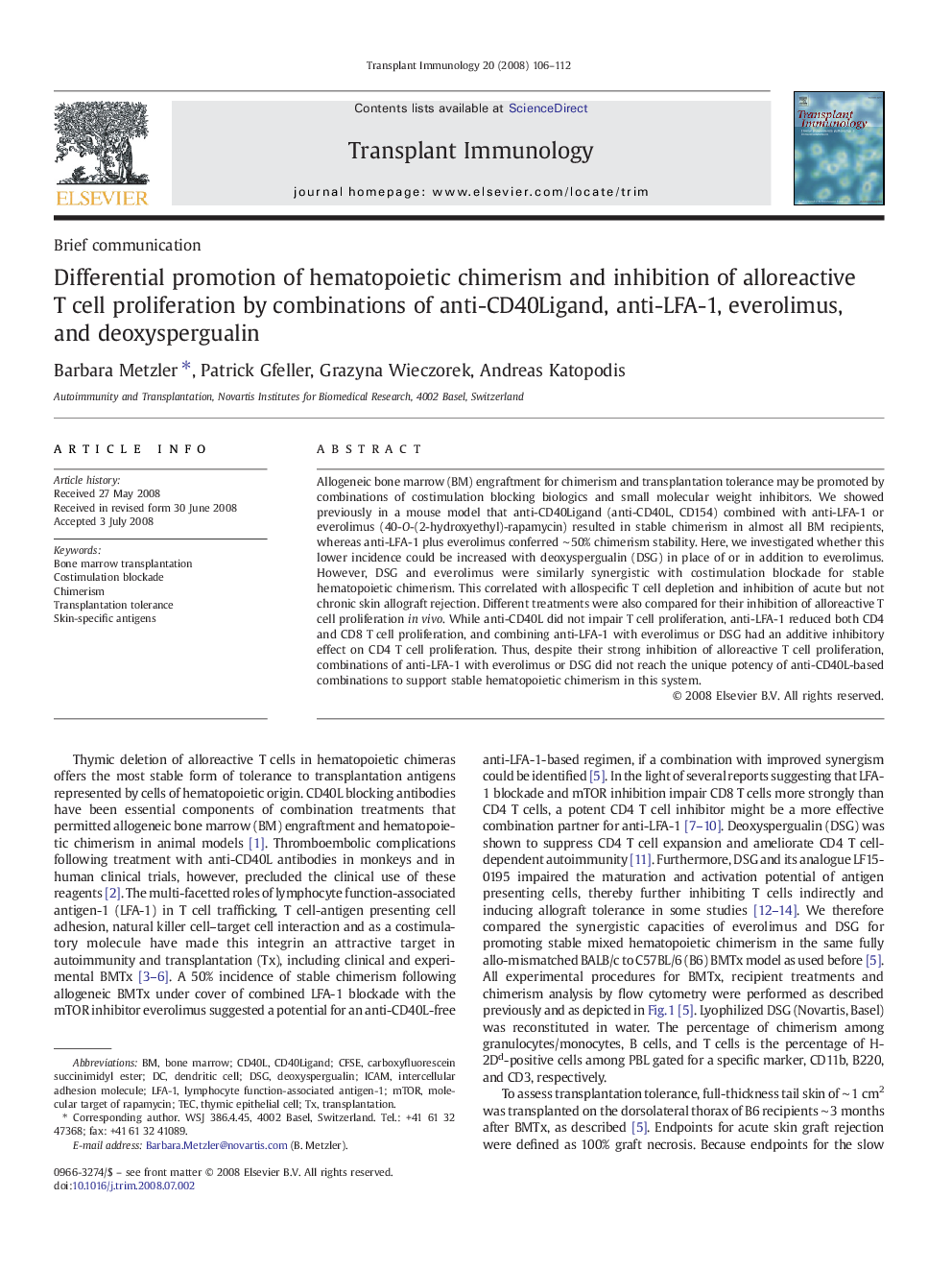| Article ID | Journal | Published Year | Pages | File Type |
|---|---|---|---|---|
| 3392437 | Transplant Immunology | 2008 | 7 Pages |
Abstract
Allogeneic bone marrow (BM) engraftment for chimerism and transplantation tolerance may be promoted by combinations of costimulation blocking biologics and small molecular weight inhibitors. We showed previously in a mouse model that anti-CD40Ligand (anti-CD40L, CD154) combined with anti-LFA-1 or everolimus (40-O-(2-hydroxyethyl)-rapamycin) resulted in stable chimerism in almost all BM recipients, whereas anti-LFA-1 plus everolimus conferred â¼Â 50% chimerism stability. Here, we investigated whether this lower incidence could be increased with deoxyspergualin (DSG) in place of or in addition to everolimus. However, DSG and everolimus were similarly synergistic with costimulation blockade for stable hematopoietic chimerism. This correlated with allospecific T cell depletion and inhibition of acute but not chronic skin allograft rejection. Different treatments were also compared for their inhibition of alloreactive T cell proliferation in vivo. While anti-CD40L did not impair T cell proliferation, anti-LFA-1 reduced both CD4 and CD8 T cell proliferation, and combining anti-LFA-1 with everolimus or DSG had an additive inhibitory effect on CD4 T cell proliferation. Thus, despite their strong inhibition of alloreactive T cell proliferation, combinations of anti-LFA-1 with everolimus or DSG did not reach the unique potency of anti-CD40L-based combinations to support stable hematopoietic chimerism in this system.
Keywords
Related Topics
Life Sciences
Immunology and Microbiology
Immunology
Authors
Barbara Metzler, Patrick Gfeller, Grazyna Wieczorek, Andreas Katopodis,
